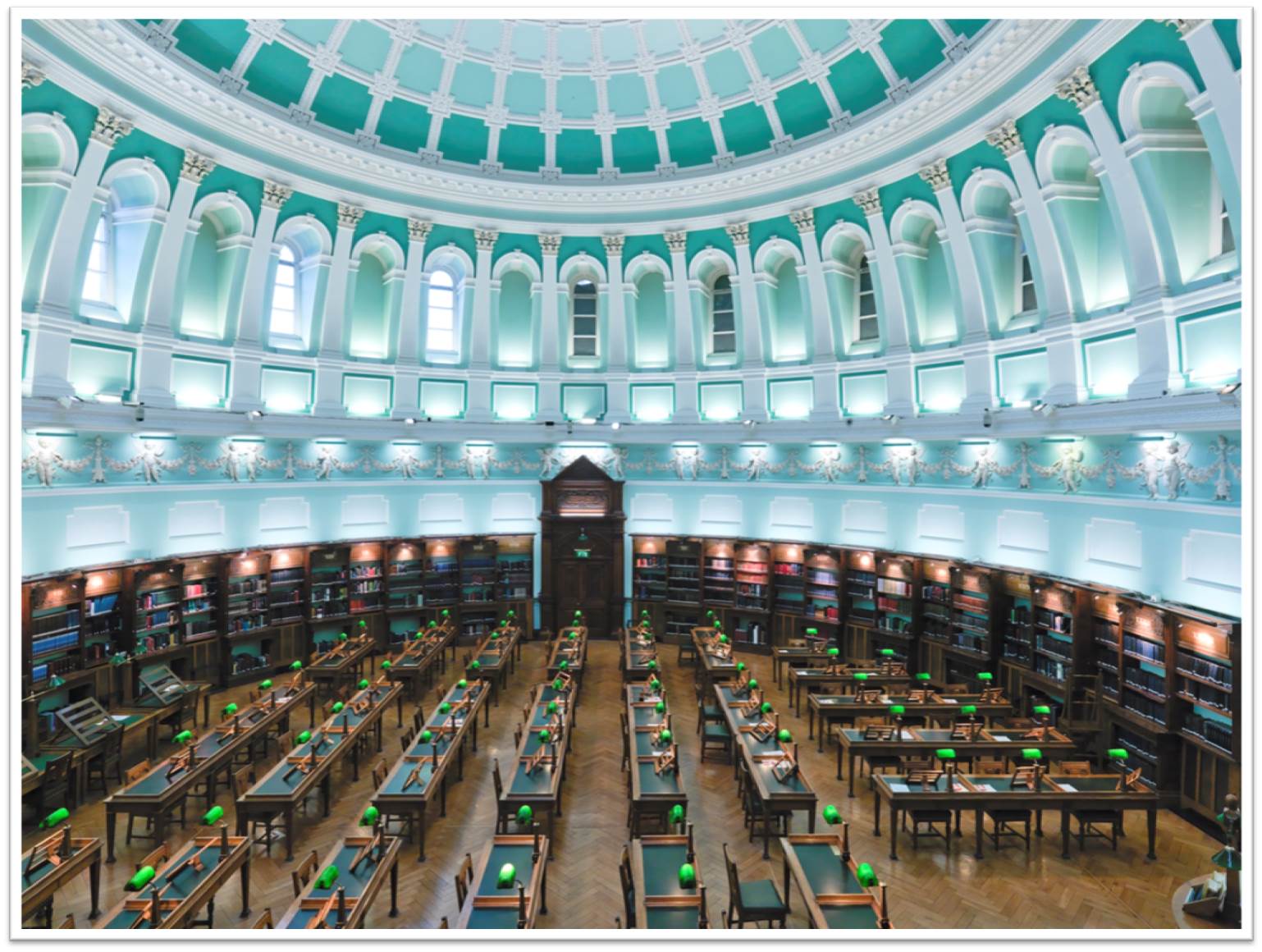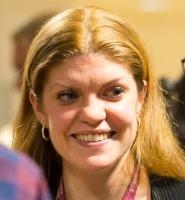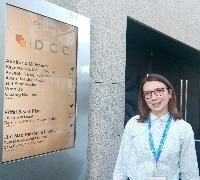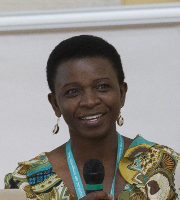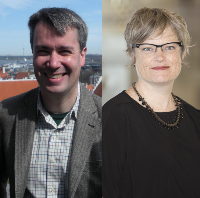Blog
Unless otherwise stated, content is shared under CC-BY-NC Licence
User access to born-digital archives: first steps for Wellcome Collection
The post was written by Victoria Sloyan, Archivist at the Wellcome Collection
Last November, the Collections Information Team at Wellcome Collection and Dr James Baker from the University of Sussex organised a workshop to bring together researchers and archival professionals to explore methods for providing access to born-digital archives.
Wellcome has been acquiring born-digital records for over a decade. Initially, the focus was on encouraging donations of digital media and getting hold of the material. Once records started to arrive we turned out attention to making sure they were kept safe and adequately preserved. We then began cataloguing in earnest, leading to all kinds of questions being considered about arrangement and description: is there an original order? How will researchers expect to navigate and use born-digital records? To what extent is the metadata embedded in digital files sufficient for research use? Many of our decisions were based on best guesses, recognising that we didn’t fully understand how the catalogue records or the born-digital records themselves would be interrogated and used by researchers.
Notes from IDCC 2018 - Day Two
Day two of IDCC18 explored not only how we can better support data management, but also what we can do with data to meet the aims of our organisations, and finally how we can work together to create more inclusive communities that support innovative solutions. Inclusivity was also the theme of the closing remarks, which revealed that the conference organisers had taken steps to encourage a more even gender balance in the contributing voices. The overall atmosphere of the second day was one of being invited to consider new possibilities, adopt new approaches and contribute to the conversation.
Notes from IDCC 2018 - Day One
The 13th IDCC took place in Barcelona in February this year and with the help of a scholarship from the DPC, I was able to attend for the first time. The conference theme was ‘Beyond FAIR’ (findable, accessible, interoperable and reusable) data, and these principles were at the heart of many of the talks. Questions surfaced about the extent to which it is possible to make data FAIR, the challenges involved and what needs to be considered outside these principles. As a new professional, it was interesting to hear about data curation in a range of contexts from those actively engaged in digital practice. The focus on sharing practical lessons meant being able to see examples from across the data curation community of the principles of FAIR data being applied. The enthusiasm of the speakers to talk about the work they are involved in, the developments they’ve made as well as the setbacks they’ve experienced in the pursuit of making data FAIR was not only useful but inspiring.
I Second That Emotion....
In my previous blog post ‘Let’s Get Together and Feel Alright….’ (can we see a theme with the titles?) I touched on some of the reasons why I think it’s important to not only accept diversity and inclusion within the Digital Preservation Community but to actively work to encourage it. Similar themes are picked up and expanded upon in Somaya Langley’s important new post on the DPOC Project Blog ‘The Ethics of Working in Digital Preservation’.
Somaya talks about her own experiences, both good and bad, and how they have led her to the conclusion that only by working together as a respectful, welcoming and inclusive community can we achieve real progress towards our digital preservation goals. No one can do this in isolation and we must invite all kinds of different people to the table.
I could not agree more whole-heartedly, especially with Somaya’s conclusion that we must be proactive and clear about who we want to be as a community. At the end of my blog post I mentioned that at the DPC we were embarking on a piece of work to look at best practice for inclusion, diversity, accessibility and codes of conduct. I’m pleased say this work has been making good progress and a draft proposal for a ‘Digital Preservation Community Charter’ is going out to some key stakeholders for their input and feedback. We hope to develop this further with the wider digital preservation community over the coming weeks.
Keep an eye out for more on that in the near future, but in the meantime make sure to check out Somaya’s blog post.
Digital preservation at the UNMICT: the year in retrospect...
The United Nations International Residual Mechanism for Criminal Tribunals (Mechanism) was established in December 2010 by the United Nations Security Council as the successor of the International Criminal Tribunal for Rwanda (ICTR) and the International Criminal Tribunal for the former Yugoslavia (ICTY). It began operations in Arusha in 2012 and in The Hague in 2013. According to its Statute, the Mechanism is mandated to, among other things, preserve and provide access to the archives of the ICTR, the ICTY, and the Mechanism itself. The Mechanism took custody of the ICTR and the ICTY archives by the time of the closure of these Tribunals in 2015 and 2017, respectively.
The volume and complexity of the material presents a variety of technical challenges, particularly with regard to the digital records. The ultimate volume of the digital archives will be approximately three petabytes, composed of born-digital and digitized documents, audio and video recordings, photographs, databases and websites - all of this in a variety of formats. To date, more than 50 file formats have been identified.
Planning for digital preservation version 2
The Public Record Office of Northern Ireland (PRONI) completed a digital preservation project in March 2015. At that point, we had implemented a solution which included:
- A standalone quarantine / virus checking solution;
- The use of existing software, e.g. DROID, Bagger, TreeSize Pro;
- A MS Excel tool to assist with the generation and manipulation of metadata;
- Software to validate checksums and create archival information packages;
- A digital repository to store and validate the digital records;
- Software to apply the digital records to our existing catalogue systems, staff and public facing.
A lot has happened since the end of the project, some good, some not so good. The challenge now is to learn from the experience and start planning for the next version of the system.
Calling All Digital File Format Enthusiasts! The Library of Congress Wants Your Feedback on the Recommended Formats Statement
By Kate Murray and Ted Westervelt, Library of Congress
If you are a fan of digital file formats and we know there are lots of you out there, get your thinking cap on and editing pen ready because we want to hear from you! It’s that time of year when The Library of Congress is seeking input on its yearly review and revision of the Recommended Formats Statement.
iPRES2018 - the 15th International Conference on Digital Preservation will be co-hosted by Harvard and MIT!
The following is a guest post by the iPRES2018 Social Media Team. The interview was lead by Michelle Lindlar.
iPRES - the International Conference on Digital Preservation - is without a doubt the biggest and most important conference of the year for everyone involved in digital preservation, curation and long-term data stewardship. The conference series has been bringing together researchers and practitioners from around the world for the past 15 years, with the conference locations alternating between Asia-Pacific, Europe and North America. This September, iPRES will be returning to the US and will be co-hosted by MIT and Harvard. Let’s hear directly from the co-organizers Nance McGovern and Ann Whiteside what we can expect from the iPRES2018.
#DeleteFacebook and User Data Scandal Plastered Across the Headlines. Meanwhile, the National Forum on Ethics and Archiving the Web
National Forum on Ethics and Archiving the Web, New York, 22-24 March 2018
Web archives can serve as witness to crimes, corruption, and abuse; they are powerful advocacy tools; they support community memory around moments of political change, cultural expression, or tragedy. At the same time, they can cause harm and facilitate surveillance and oppression.
Tomorrow I jet off to the big apple to attend the National Forum on Ethics and Archiving the Web hosted by Rhizome, the Documenting the Now project, and partners.
Digital Collections at the National Library of Ireland
by Jenny Doyle, Joanna Finegan, Della Keating and Maria Ryan, Digital Collections Department, National Library of Ireland.
